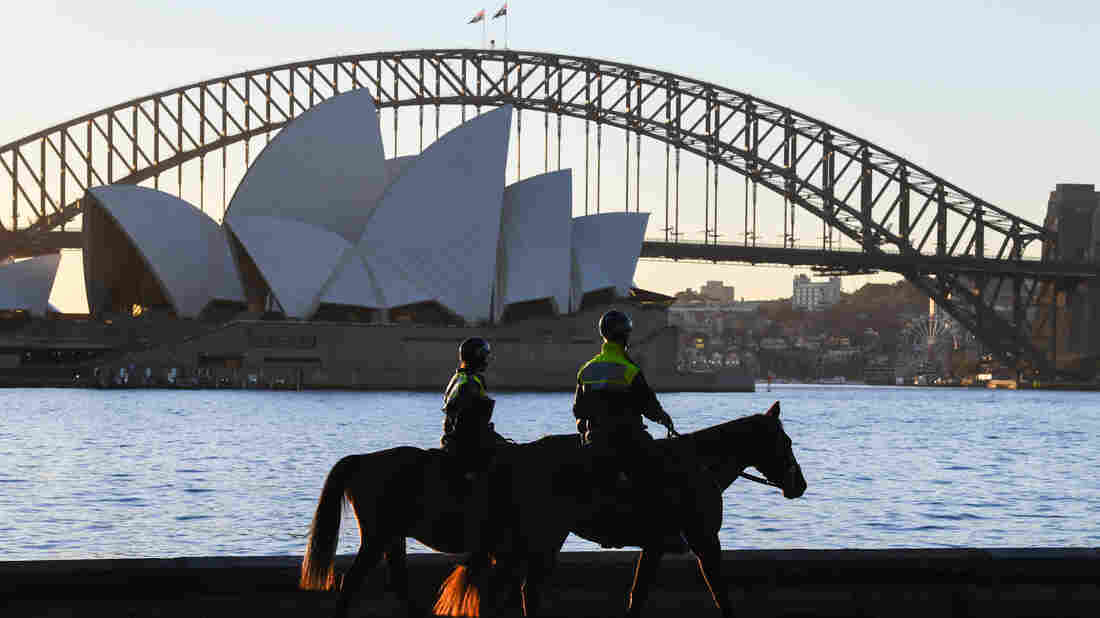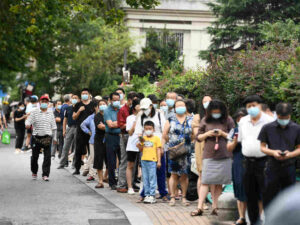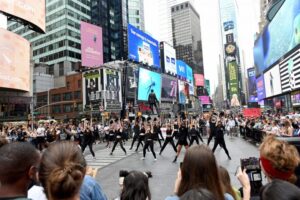Mounted police officers patrol around the edge of Sydney Harbor on Friday as the city has been locked down amid a new surge in coronavirus infections.
James D. Morgan/Getty Images
James D. Morgan/Getty Images
Australian soldiers are joining local police in New South Wales to enforce a coronavirus lockdown in and around Sydney, as authorities try to tamp down the latest outbreak of cases linked to the more infectious delta variant.
Starting Monday, some 300 unarmed soldiers will begin patrols in Sydney — a city of six million people. They will be knocking on doors to ensure that residents are following strict stay-at-home measures, the Australian broadcaster ABC reports.
On Wednesday, Sydney extended a lockdown by a month — until Aug. 28 — as cases there continued to rise. Despite those measures, New South Wales, the state where Sydney is located, is reporting 170 additional cases traced to a man who caught the virus but failed to self-isolate, ABC says.
The military’s help is needed to enforce the restrictions because a small minority of people thought “the rules didn’t apply to them,” NSW Police Minister David Elliott told Australia’s Channel Nine.
Australian Prime Minister Scott Morrison has come in for heavy criticism in recent weeks over the slow pace of vaccinations in Australia, where about 14% have been fully dosed — one of the poorest records among any Organization for Economic Cooperation and Development, or OECD, member country.
Defending his government’s handling of the vaccination rollout, Morrison on Wednesday said, “No country has got their pandemic response 100%.”
Hoping to quell public anger over the lockdowns and discourage vaccine resistance, Morrison on Friday said that vaccinated Australians would be able to avoid some lockdowns once the rate of inoculation in the country hit 70%. He said once that rate hit 80%, broad lockdowns in major cities would no longer be necessary.
“If you get vaccinated, there will be special rules that apply to you. Why? Because if you’re vaccinated, you present less of a public health risk. You are less likely to get the virus. You are less likely to transmit it,” the prime minister told reporters, according to the Sydney Morning Herald.



















